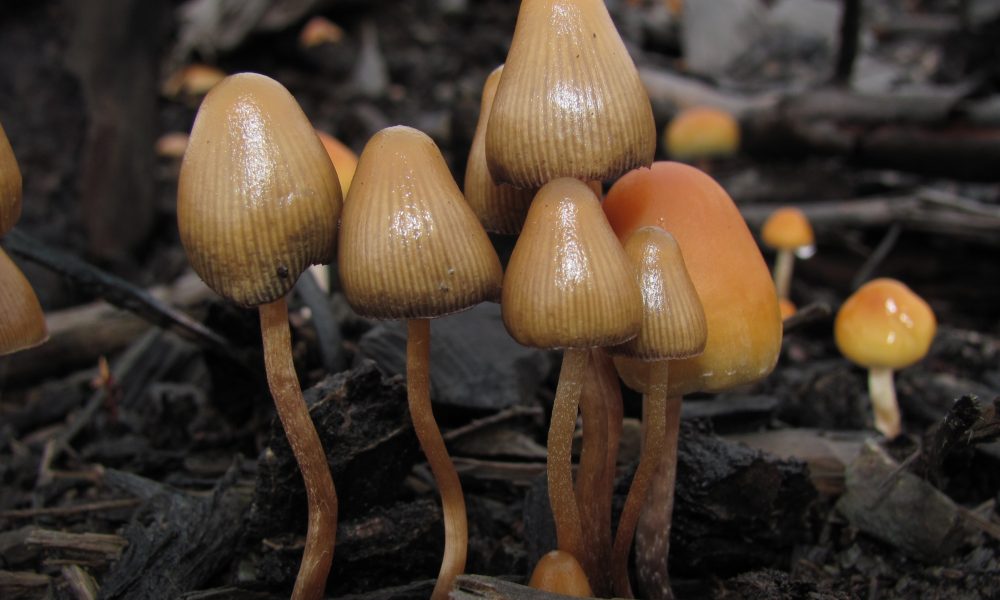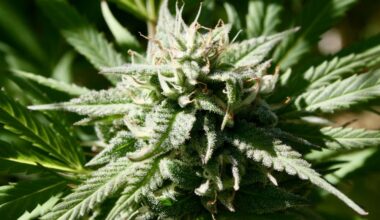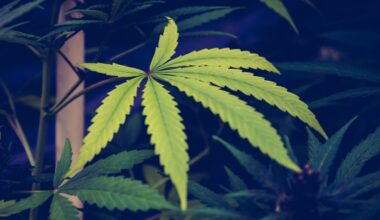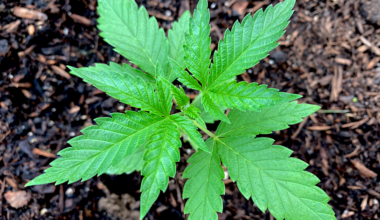Another California city is pursuing a resolution to decriminalize psychedelics, with an Arcata City Council member agreeing to sponsor the measure.
Decriminalize Nature Humboldt announced on Friday that Councilmember Sarah Schaefer agreed to lead the resolution, which would make enforcement of laws against entheogenic substances like psilocybin and ibogaine among the city’s lowest law enforcement priorities.
The group says they plan to discuss the reform measure with other local lawmakers over the next month.
“This resolution is consistent with the beliefs held by many Arcatans,” Schaefer said in a press release. “The decriminalization of entheogenic plants and fungi is an important step away from the war on drugs while expanding opportunities for research on the medicinal benefits of these plants and fungi.”
“Research shows that these plants have the potential to help overcome anxiety, depression, substance abuse, and so much more, something that could be enormously beneficial to any community,” she said.
Danielle Daniel, lead organizer of Decriminalize Nature Humboldt, said psychedelics decriminalization is “the first step to right the wrong of the failed drug war.”
Under the proposed resolution, “planting, cultivating, engaging in practices with, or possessing entheogenic plants and fungi or plant compounds shall be the lowest law enforcement priority for the City of Arcata.”
It also aims at “reprioritizing funding away from the arrest of individuals engaging with entheogenic practices,” the group said.
“Decriminalization of entheogenic plants and fungi creates attainable pathways toward healing, particularly for those living with treatment resistant mental health conditions, and creates safe, ethical, and equitable access to sacred medicines of the earth,” Taylor Albamonti of Decriminalize Nature Humboldt said. “All human beings should have the right and ability to cultivate relationships with these sacred plant teachers, and the healing journey they invite us to embark on.”
If passed, Arcata would become the third California city to enact the reform, following Oakland and Santa Cruz.
At the state level, a California bill to legalize possession of certain psychedelics that cleared the Senate last month was recently approved by an Assembly committee, and is set for further committee action next week.
Outside of the state, three Massachusetts cities—Northampton, Somerville and Cambridge have each moved to effectively decriminalize psychedelics and other currently illicit drugs in their areas.
Ann Arbor and Washington, D.C. have also locally decriminalized possession of plant-and fungi-based psychedelics.
These are some of the latest iterations of a national psychedelics reform movement that’s spread rapidly since Denver became the first city to decriminalize psilocybin mushrooms in 2019.
Texas also recently enacted a bill to require the state study the medical benefits of psychedelics for military veterans.
In New York, a lawmaker introduced a bill last month that would require the state to establish an institute to similarly research the medical value of psychedelics.
In Oakland, the first city where a city council voted to broadly deprioritize criminalization of entheogenic substances, lawmakers approved a follow-up resolution in December that calls for the policy change to be adopted statewide and for local jurisdictions to be allowed to permit healing ceremonies where people could use psychedelics.
After Ann Arbor legislators passed a decriminalization resolution last year, a county prosecutor recently announced that his office will not be pursuing charges over possessing entheogenic plants and fungi—“regardless of the amount at issue.”
The Aspen, Colorado City Council discussed the therapeutic potential of psychedelics like psilocybin and proposals to decriminalize such substances at a meeting in May. But members said, as it stands, enacting a reform would be more better handled at the state level while entheogens remain strictly federally controlled.
Seattle lawmakers also recently sent a letter to members of a local task force focused on the opioid overdose epidemic, imploring the group to investigate the therapeutic potential of psychedelics like ayahuasca and ibogaine in curbing addiction.
Another sign of the progress of this burgeoning psychedelics movement is that Harvard Law School last month announced the launch of a first-of-its-kind psychedelics policy center that it hopes will inform legislation and help clinicians navigate this growing medical space as reform continues to advance.
In 2019, Johns Hopkins University launched the nation’s first center devoted exclusively to researching psychedelic drugs—though its focus is on the therapeutic potential of these substances, rather than delving into the policy side of the issue.
Photo courtesy of Wikimedia/Mushroom Observer.
The post Third California City Seeks To Decriminalize Psychedelics appeared first on Marijuana Moment.
Medical Disclaimer:
The information provided in these blog posts is intended for general informational and educational purposes only. It is not a substitute for professional medical advice, diagnosis, or treatment. Always seek the advice of your physician or other qualified healthcare provider with any questions you may have regarding a medical condition. The use of any information provided in these blog posts is solely at your own risk. The authors and the website do not recommend or endorse any specific products, treatments, or procedures mentioned. Reliance on any information in these blog posts is solely at your own discretion.





